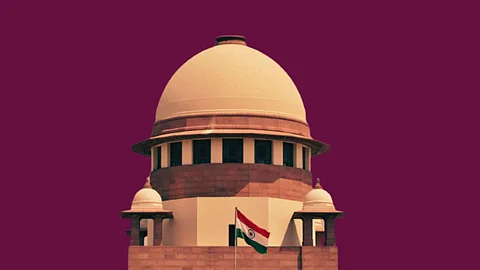

The Supreme Court on Tuesday, July 29, fixed August 19 to begin hearing the Presidential Reference regarding the power of the judiciary to prescribe timelines for the President and Governors while dealing with Bills passed by State legislatures.
A five-judge Constitution Bench said it will first hear Tamil Nadu and Kerala on the preliminary issue of maintainability, after both States argued that the Reference is essentially an “appeal in disguise” against the Court’s April 8 judgement.
The five-judge Constitution Bench comprising Chief Justice B.R. Gavai, and Justices Surya Kant, Vikram Nath, Pamidighantam Sri Narasimha and Atul S. Chandurkar said that the hearing would begin with the States of Tamil Nadu and Kerala—represented by senior advocates K.K. Venugopal, A.M. Singhvi, and P. Wilson—being granted one hour to establish why the Reference should be returned unanswered.
‘Preliminary hearing needed on maintainability of Reference’
Senior Advocate K.K. Venugopal, appearing for Kerala, insisted that the Bench must decide the issue of maintainability before hearing the Centre’s arguments on the merits of the Presidential Reference. “A preliminary hearing should be held on the maintainability of the Reference. This should be done first,” he pressed.
Attorney General R. Venkataramani, appearing for the Union government, agreed that the States should be fully heard before he makes submissions supporting the Reference. The Bench accepted this sequencing and directed all parties to submit their written arguments on or before August 12.
As per the Court’s schedule, the Union government will be heard on August 19, 20, 21, and 26. Responses from the States and other opposing parties will be taken up on August 28 and September 2, 3, and 9. The Centre will get a final opportunity to rebut on September 10.
“Timelines must be followed scrupulously,” Chief Justice Gavai told the lawyers.
In a procedural clarification, the Court directed that no lawyer, except Mr. Venugopal, would be allowed to appear online.
Solicitor General Tushar Mehta supported the exception, describing Mr. Venugopal as “sui generis” (unique).
The States of Tamil Nadu and Kerala have urged the Court to dismiss the Presidential Reference outright, contending that it violates the boundaries of Article 143 of the Constitution, which governs the advisory jurisdiction of the Supreme Court. Kerala, represented by Venugopal and advocate C.K. Sasi, argued that such a Reference can only be made if the legal question is still undecided or res integra.
However, the constitutional questions raised in the present Reference—relating to the powers of the President and Governors under Articles 200 and 201—have already been settled by the Court.
‘If SC given authoritative ruling, same issue cannot be reopened via Article 143’: Kerala
The Kerala government cited past precedents, including the 1993 Cauvery Water Disputes Tribunal Reference, to argue that once the Supreme Court has delivered an authoritative ruling, the same issue cannot be reopened via Article 143. It highlighted three separate Constitution Bench judgments, including the April 8, 2025 ruling in the Tamil Nadu Governor case authored by Justice J.B. Pardiwala, had already settled the legal position on timelines for constitutional authorities in dealing with State legislation.
“When the Supreme Court in its adjudicatory jurisdiction pronounces its authoritative opinion on a question of law, it cannot be said that there is any doubt about the question or that the same remains undecided so as to warrant Presidential clarification,” Kerala submitted.
The State further argued that if the Union Government disagreed with the April 8 ruling, it should have filed a review or curative petition, rather than route its grievance through a Presidential Reference, which is meant for genuine legal ambiguities and not rehearing final judgements.
The Presidential Reference, made on May 15, 2025, questions whether the Court exceeded its jurisdiction by prescribing timelines for the President and Governors to act on State Bills, as well as whether the concept of “deemed assent” violates the doctrine of separation of powers. The Union government has defended the Reference, stating that the judiciary’s intervention encroached on the constitutional functions of the executive.
The upcoming hearings, beginning with the crucial maintainability test on August 19, are expected to determine the constitutional boundaries of Article 143 and the interplay between judicial pronouncements and executive advisories.